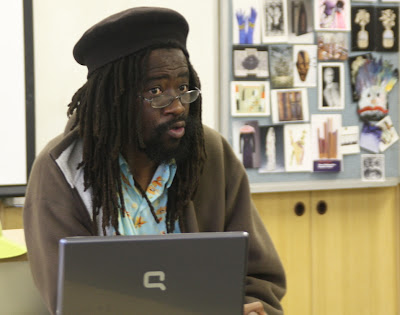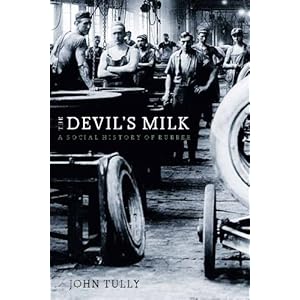Malaysian socialists: `Stop brutal massacre in Libya NOW! Power to the people of the Arab world!
Solidarity statement by the Socialist Party of Malaysia with the people's uprising in Libya and the rest of Arab world against authoritarian regimes
February 22, 2011 -- The Socialist Party of Malaysia (PSM) condemns the brutal repression committed by Muammar al-Gaddafi’s regime against its people who revolt against injustices and corruptions.

46 arrested activists charged with treason, tortured
February 25, 2011 -- It has now been confirmed that detained labour movement activist and leading member of the International Socialist Organization Zimbabwe Munyaradzi Gwisai (pictured) and 45 other activists detained by the Zimbabwe state on February 19 have been charged with treason. If found guilty of treason, the activists risk a sentence of death or life imprisonment. They are being tortured to extract bogus confessions. The arrests followed a raid on a closed meeting that was discussing the implications of the revolutions in the Arab world. Gwisai is director of the Labor Law Centre and former Movement for Democratic Change (MDC) MP.
The economic crisis -- What are the main causes?
By Jeyakumar Devaraj, Socialist Party of Malaysia
Tunisia: 14th January Front proposes a National Congress for the Defence of the Revolution

By the 14th January Front*
February 14, 2011 -- The Tunisian revolution is the first of the 21st century. Its shock waves have shaken dictators and Western governments. But it has yet to overturn the ancien regime, and the neocolonial state apparatus that supports it. As an expression of popular unrest it has been fed by the anger of a diverse classes, at least until January 14, 2011. Since that date there has been increasing polarisation between the forces who back the revolution and those of the counterrevolution.
Those on the latter side are attempting to safeguard their constitution and its institutions. With the collaboration with liberal fringes of the democratic movement, Western agents, Islamists and the leftovers of the ancien regime, they are trying to stem the social movement. The provisional government of "national unity" is peopled by former members of Ben Ali’s power structure. This includes a prime minister (from 1999), Mohamed Ghannouchi, who was the architect of neoliberal policies dictated by imperialist financial bodies.
Bahrain and the Anglo-American oil frontier

US President George W. Bush greets vice-admiral Kevin Cosgriff, commander of US Naval Forces Central Command and the US 5th Fleet, at Naval Support Activity Bahrain in 2008. If the Bahrain monarchy falls, the country may cease to host the US Navy.
By Richard Seymour
February 19, 2011 -- Lenin's Tomb -- When, in 1968, the British government announced that Britain's formal protectorate in the Gulf would end in 1971, US planners were anxious and distraught. After Suez, the US had taken the lead in defending Anglo-American interests in the Middle East, but the structure of power in the "east of Suez" was still conserved by the old colonial power. The Persian Gulf states at that time supplied 30% of total oil resources. The reconstruction of Europe, and especially Japan, after WWII was driven by Gulf oil. And the US had no alternative structure of security elaborated for when Britain let go.
Bahrain: Appeals for protest and solidarity
Bahrain authorities open fire on protesters on February 18, 2011. The protesters are chanting "peacefully, peacefully".
New book reveals the history of rubber: holocausts, environmental destruction and class struggle

The Devil’s Milk: A social history of rubber
By John Tully
Monthly Review Press, 2011
[Order the The Devil’s Milk from Monthly Review Press HERE. John Tully launched the book in Melbourne on February 17, at Readings Books, Carlton (309 Lygon St). He will also launch it in New York City on February 22, 7.30pm, at The Brecht Forum, 451 West Street.]
February 18, 2011 – Links International Journal of Socialist Renewal -- This new book from Monthly Review Press – by Australian socialist John Tully -- documents the history of rubber and the role it has played in the development of capitalism.
Rubber is an essential industrial material, although underappreciated by most of us, even though we are surrounded by it. Since its industrial uses began to be fully appreciated in the 1800s, the quest for rubber has been, in Tully’s words, “a paradigm of imperialism”.
The food price crisis and the Egyptian revolution

Since 2008, rising food prices have resulted in 40 mass riots throughout the globe and the United Nations reports that 37 countries currently face a food crisis.
By Billy Wharton
February 14, 2011 -- Socialist Webzine -- Hidden beneath the spectacular street battles that forced the Egyptian dictator Hosni Mubarak out of office was a trigger that exists in dozens of countries throughout the world – food. Or, more specifically, the lack of it. While commentators focus on the corruption of the dictatorship, or the viral effects of the Tunisian moment or the something akin to an Arab political awakening, the inability of the Egyptian regime to ensure a steady flow of food staples should be viewed as a critical factor driving this seemingly spontaneous movement for freedom.
Egypt: Much more than a `Facebook revolution'

February 18, 2011 – There has been much written in the mainstream and even the alternative media – much of it superfi
Australia: 'Green Left Weekly' celebrates 20 years!

One of the despairs of our time is a corporate media that speaks for authority and power, rarely for its readers and viewers. One of the excitements of our time is the means by which we can now circumvent the old gatekeepers. WikiLeaks is a new creation, but Green Left Weekly has been a pathfinder for 20 years, no less. Congratulations!
— John Pilger, renowned journalist and filmmaker.
Over the course of the past 20 years, Green Left Weekly has emerged as a focal point of the world green left movement, its leading weekly guide to theory and practice. Long may its flag fly!
— John Bellamy Foster, editor, Monthly Review.
What better birthday present could Green Left Weekly have asked for than the Egyptian people’s taste of freedom? Congratulations to all at GLW. Onward!
— Raj Patel, independent journalist, author and activist.
Fidel Castro: The revolutionary rebellion in Egypt

By Fidel Castro Ruz
France, WSF, Korea ... International left solidarity with the Egyptian people's uprising
Below are a number of statements and reports of solidarity actions around the world following the overthrow of the US-backed Egyptian dictator Hosni Mubarak. They include a statement from organisations attending the New Anti-Capitalist Party congress in France, solidarity from the World Social Forum in Dakar, Senegal, a statement by leaders of the Socialist Party USA and a report on trade union organised protests in South Korea. Check back for more.
* * *
Statement from left organisations present at the New Anti-Capitalist Party congress
February 12, 2011 -- The overthrow of Ben Ali and Mubarak change the political situation not only in the Maghreb but on the international scale.
